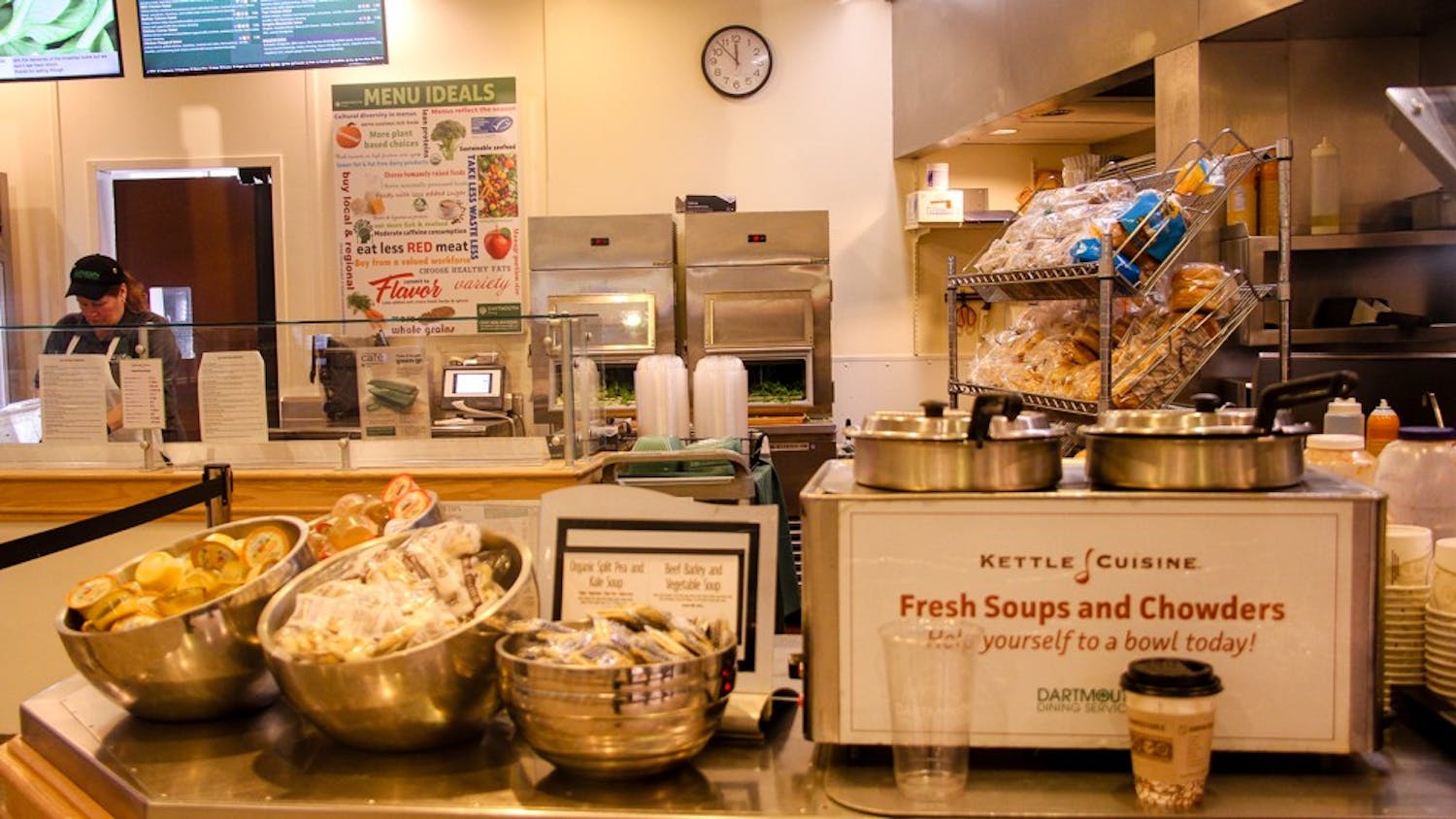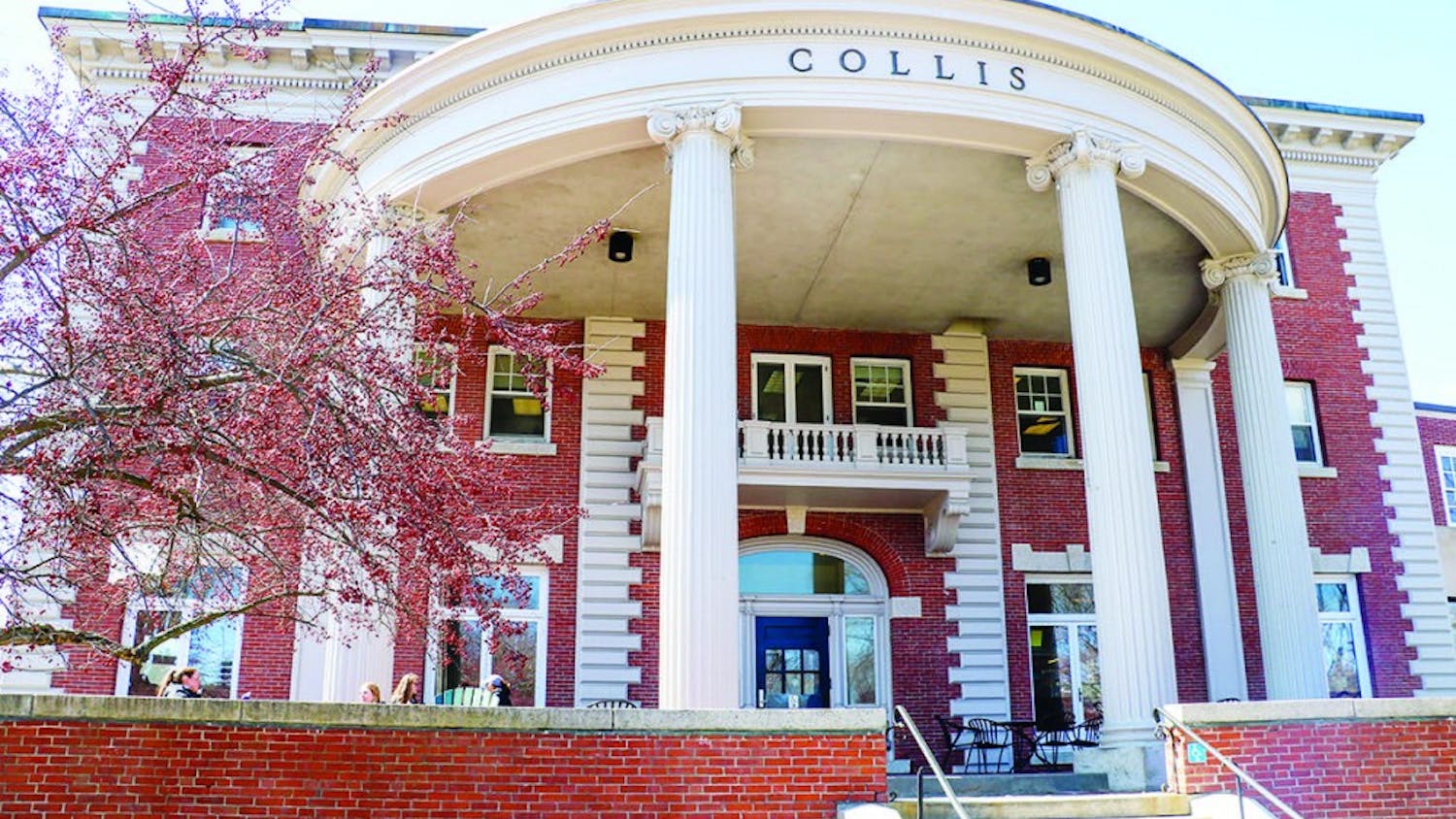As fall term winds down and interim approaches, many students face an issue beyond finals and winter break plans: food insecurity. Despite efforts to address the issue, the lack of affordable dining options in the local area, especially during breaks, often leaves a number of students scrambling for alternatives. However, Dartmouth Dining Services and Student Assembly are working to resolve at least part of this issue.
In an attempt to increase food availability for students, the College will offer select dining services during the upcoming interim for the first time. From Dec. 2 to Dec. 19, the Courtyard Cafe at the Hopkins Center for the Arts will offer certain menu items from 8 a.m. and 6 p.m. every day, and ’53 Commons will serve lunch from 11:30 a.m. to 1:30 p.m. from Monday to Friday. DDS will also offer takeout services when the Courtyard Cafe and ’53 Commons are closed from Nov. 28 to Dec. 1 and Dec. 20 to Jan. 1. While students can pay with either cash or DASH, eligible students may also receive additional financial aid.
“Right now, we’re looking at this pilot and seeing how successful it is,” said associate vice president of business and hospitality David Newlove. “If it’s successful, we might carry it into other breaks and other time periods.”
Newlove said that over 50 students have already signed up for the program, and students have until Nov. 19 to sign up.
Additionally, SA is working to revise and improve its efforts to reduce food insecurity on campus.
Last year, SA conducted a study on the scope of food insecurity on campus and proposed solutions. As part of the study, SA surveyed 335 students — 133 of whom were on financial aid. Fifty-three percent of the surveyed students receiving financial aid reported that they had stayed on campus at least once for interim due to financial restrictions. Of those students, 56 percent reported that eating in town or purchasing groceries for the duration of interim was not financially stable for them.
For many students, such as Maleah Wenzel ’20, the cost of living during breaks has been frustrating because of the lack of adequate dining options in town and provided by the College.
“If we are looking at it from a statistics point, they might not be willing to spend enough money to feed those few people who really need food over the break,” Wenzel said. “But if we’re looking at it from a human rights standpoint, the College has a $4.5 billion endowment, and if they spared a few hundred dollars, then they could keep students from actually starving.”
Originally from Alaska, Wenzel has spent multiple breaks on campus due to financial restrictions — she said she often found herself stockpiling dining hall food and attending numerous Office of Pluralism and Leadership and First-Year Student Enrichment Program events “just to get by,” especially since she has a medical condition that requires her to eat a high-calorie and high-fat diet.
“OPAL and FYSEP would do meals once or twice a day that started a few days in, so you would have to find food before that,” Wenzel said. “But even as they started, as someone who constantly has to eat a certain amount to keep my weight up, two meals a day is not enough.”
Wenzel has also indirectly experienced food insecurity during academic terms. Though she considers herself “lucky enough to have scholarships to cover big meal plans” for academic terms, she explained that a few of her friends did not have such financial luck and had to buy the least expensive meal plans available. As a result, however, those friends often ran out of meal swipes and DBA before the end of the term, and she frequently used her own DBA to purchase food for them, Wenzel said.
“Balancing my privilege in having those scholarships and wanting to help my friends who don’t have those but also needing to help myself with my medical condition, that can be pretty rough,” Wenzel said.
SA has previously taken measures to address campus food insecurity, including a voucher program that provided $2,500 worth of gift cards to the Hanover Co-op to students. As Wenzel explained, however, the program, “while helpful, did not meet all of student need.”
“I did use the voucher program, and it helped a little bit,” she said. “But, first of all, it’s hard to get to the Co-op because you either have to walk while carrying everything or drive. If you can’t afford food, you most likely can’t afford a car and parking, and the $25 or $50 at the Co-op doesn’t go that far.”
SA is currently looking to revise the voucher program because of both need-related issues and legality.
“There are a lot of legal issues with the way the voucher program was set up,” said SA president Luke Cuomo ’20. “Effectively, if we are giving away our funds to students, for one, the College has policies about that, and, two, there [are] taxation laws that come into question.”
He added that SA also hopes to work alongside the Sustainability Office to start a cooking vessel — essentially kitchen supplies — rental system that would allow students to cook their own meals when on-campus dining options are closed.
“Not a lot of people are always affected,” Wenzel said. “But those who are affected are affected to a level that can be dire. Those are the people that really need to be focused on. “




